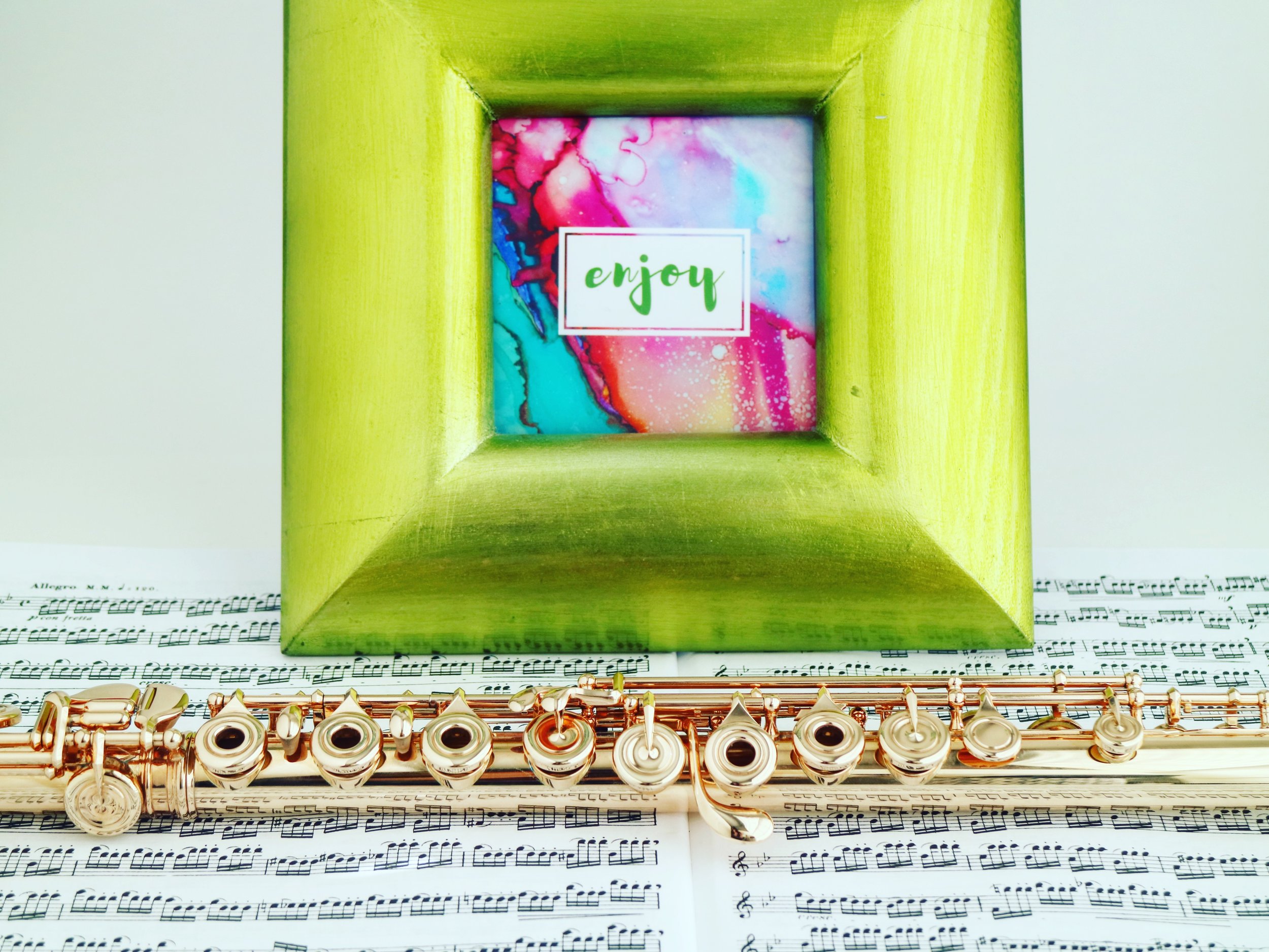Are You Mentally Practicing Mistakes? Finding Awareness in Mental Practice
Earlier this week while teaching two separate students, we came across some difficult technical passages. While playing, there were a couple slip-ups.
Before going any further, I asked each of them to mentally read through the passage and absorb all the notes - no moving fingers, just reading.
I did it, too.
What did I notice?
I was reading it fairly quickly and made mistakes and stumbled in my own head.
So I asked: "Did your mental run-through involve mistakes?"
They responded: "Yes!!"
"Isn't that interesting!?"
This really struck me as an opportunity to investigate and gain some clarity for myself and my students.
Mistakes and stumbles aren't necessarily directly caused by fingers slipping up.
The fingers slip up because the eyes haven't looked long and closely enough to allow the brain to process the notes that are there, meaning the correct message hasn't been delivered to the fingers.
Why did we stumble?
When reading through the difficult pattern quickly, we didn't have time to stop and process every note visually. We only saw some of the notes, so we had to anticipate what note was next.
The fingers took over from patterns we've already learned and muscle-memorized. We then realized the note we wanted to play wasn't the note that was actually written, so we stumbled.
Why do we go slower?
To better process, of course!
It's hard to go fast with confidence until we know it well! Aim to deeply know and understand what's written before trying to play it.
For example, in order to recite the lyrics to One Week by Barenaked Ladies at full speed, you have to know all the words first, and you'll probably need to spend a good amount of time reading and studying the actual words before you're ready to impress your friends in the car!
So, What Did We Discover?
Taking finger movement out of the picture to simply read and process was a simple and powerful means of absorbing the notes.
If we really took the time to process first, we had an easier time playing.
Beyond simply playing the correct notes, the subsequent times were also accompanied by a deep sense of confidence and clarity in phrasing.
These realizations really got me thinking - am I really utilizing mental practice in a powerful, mindful way every time I practice?
Do I really take the time to process without playing often enough?
Awareness questions for mental practice:
- Does my mental read-through contain the same mistakes as when I play?
- Do I mentally practice at a tempo slow enough to process and absorb all the notes and patterns?
- What notes do I see?
- What notes do I not see or process as easily?
- Does my mental practice seek out an understanding of patterns to assist with processing and an understanding of structure?
- Do my practice sessions involve reading the music without my instrument, or do I always play?
- If I do mentally read through the notes without playing, do I move my fingers silently?
- What is it like to only read and hear the phrase in my head?
- Is it the same or different when I begin to move my fingers silently? Do I hear the phrase in the same way?
- Am I ingraining confidence in my mental practice?
- Does my body remain easy and effortless while thinking through the notes?
- Do I imagine a beautiful sound in my mental practice?
- Is it slow enough to consider all of these things?
#PRACTICEROOMREVELATIONS
YOU MIGHT ALSO LIKE...








![The Priorities of Good Sound for Flute & Piccolo [+ Free Download]](https://images.squarespace-cdn.com/content/v1/5698446a89a60aae9b0dd518/1524968904509-OQ60PWPH10XLHCE2IED5/IMG_8341.PNG)

